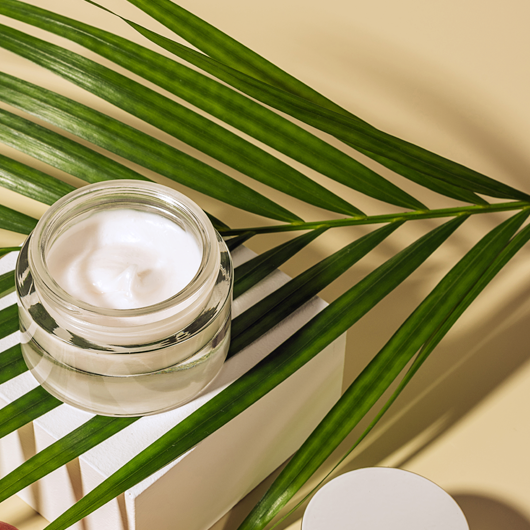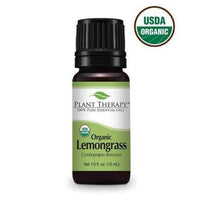Lemon, Lemongrass
Benefits of Lemon Grass: Health, Skincare, and Everyday Uses
 Scientific Name: {Citrus Limon}
Scientific Name: {Citrus Limon}
Common Name: {Lemon}
 Scientific Name: {Cymbopogon}
Scientific Name: {Cymbopogon}
Common Name: {Lemongrass}
What Is Lemon Grass? Lemon grass (Cymbopogon citratus) is a tall, aromatic herb native to Asia and Africa, widely used in cooking, herbal remedies, and skincare. Known for its citrus-like aroma and anti-inflammatory properties, it has been studied for its potential role in improving health, protecting against free radicals, and enhancing skin vitality.
From cups of lemongrass tea made with boiling water to concentrated lemongrass extract, this versatile plant has become a favorite for those looking to combine natural wellness with daily routines.
10 Health Benefits of Lemon Grass Rich in Antioxidants
Lemongrass contains compounds that help the body neutralize free radicals, which may reduce oxidative stress and promote overall wellness.
- Supports Digestion: Drinking lemongrass tea can soothe the stomach and may ease occasional bloating or indigestion.
- Weight Management Research: suggests that cups of lemongrass tea may support weight loss goals by boosting metabolism and promoting fluid balance.
- Supports Heart Health: Lemongrass may play a role in lowering high blood pressure and supporting circulation, helping reduce risks linked to heart disease.
- Immune System Support: The herb's vitamins and phytochemicals can strengthen the immune system, making it a popular choice during seasonal changes.
- Stress Reduction: The calming effects of lemongrass tea are known to ease tension and encourage relaxation.
- Anti-Inflammatory Properties: Studies in the Journal of Advanced Pharmaceutical Technology Research suggest that lemongrass exhibits compounds that may help reduce inflammation.
- May Help Manage Cholesterol Levels: Some research indicates that lemongrass extract can support a healthy cholesterol balance.
- Insect Repellent Uses: The plant's natural oils are widely used in insect repellants, offering a chemical-free option for pest control.
- Potential in Cancer Research: Early studies, including references from the Memorial Sloan Kettering Cancer Center, explore lemongrass compounds for their impact on cancer cell activity, though more research is needed.
5 Skincare Benefits of Lemon Grass
When used in skincare products, lemongrass extract and oil offer multiple cosmetic benefits:
- Tones and Refreshes the Skin – Its natural astringent properties help balance the skin's appearance.
- Rich in Antioxidants – Protects against free radicals that contribute to visible signs of aging.
- Brightens the Complexion – Promotes a more radiant look when added to facial toners and serums.
- Helps Manage Oily Skin – Known to reduce excess surface oil and refresh skin texture.
- Supports Overall Skin Vitality – Boosts circulation and encourages a healthy-looking glow.
Possible Side Effects of Lemon Grass
While the health benefits of lemon grass are numerous, it's important to note that excessive use can cause side effects in some individuals. Drinking too much lemongrass tea may upset the stomach or interact with medications for high blood pressure or heart disease. Always consult with a healthcare provider before starting new herbal remedies.
The Full Spectrum of Lemon Grass Benefits
From cups of lemongrass tea that support digestion and weight loss to skincare products that refresh and rejuvenate, the benefits of lemon grass are wide-ranging. As both a culinary herb and a cosmetic ingredient, Cymbopogon citratus continues to prove its value in modern wellness and beauty routines.
Citrus fruits are rich in Vitamin C. Even if you don't enjoy lemons' sour taste, you can't deny that they are packed with nutrients. Lemongrass, which also bears the same name, has many of the same properties and benefits.
When used as a facial treatment, it can help fight the appearance of different skin issues, ranging from acne to diminishing the look of fine lines and wrinkles.
5 Best Types of Products to Use Lemon Grass
- With Herbal Teas – Drinking lemongrass tea in boiling water is the most traditional method.
- Essential Oils – Used in aromatherapy, massage, or diluted into skincare formulations.
- Topical Skincare Products – Found in toners, face masks, and serums for antioxidant support.
- Dietary Supplements – Lemongrass extract in capsules or tinctures for targeted benefits.
- Insect Repellants & Household Sprays – Natural alternative for keeping pests away.
5 Skin Care Uses for Lemons
Here are some of the powerful benefits of lemon and lemongrass:

It helps reduce the appearance of acne scars and spots.
Although we might have thought acne only affects teenagers, we know it usually follows us into adulthood. And even if we are very good at leaving those spots alone, they can still develop scars. Applying lemon or lemongrass oil reduces the discoloration of these spots and can help to fade their appearance.
It is a mild astringent and is packed with antibacterial benefits
That means that applying it to a pimple has dual abilities. Not only will it help dry up that pimple, but it will also eliminate the bacteria that are the leading cause of acne. It is also one of the most popular natural blackhead treatments, clearing and closing up those pores.
It can be used to exfoliate the skin.
The citric acid in both ingredients is one of the mildest chemical peels on the market and the safest to use at home. While convention suggests that harsh scrubs are the most effective way to remove dead skin cells, they also tend to irritate the skin. Using either lemon or lemongrass oil, a gentle chemical peel will help you slough off dead cells. This will create a complexion that looks smoother, healthier, and brighter.
It can be used as a toner.
If you are suffering from acne, you know how difficult it is to keep your face from becoming oily. Lemon and lemongrass oil are natural toners, helping restore the skin's natural moisture balance and close overactive oil glands so that you have fresh, more natural-looking skin.
It brightens dark marks.
Whether you're dealing with acne scars or age spots, lemon and lemongrass oil are a great way to lighten those marks naturally. Whether this is an ingredient in your moisturizer or dabbed on, on its own, before bed, you will see your spots lighten overnight!
Skincare Recipes with Lemon
Try a lip scrub infused with lemon and sugar for kissable and super soft lips.
Candied Lemon Drop Lip Scrub
- 1/2 Tbs. Raw Sugar
- 1 1/2 Tbs. Brown Sugar
- 1-2 Drops Lemon Essential Oil
- Tin container
Mix the above ingredients in a glass bowl and place it in a tin container. Apply to lips and gently rub in a circular motion to exfoliate. Rinse off.
Lemon-Lime Facial Exfoliator
- 1/2 c. Raw Sugar (for mature skin) or 1/2 Cup Coarse Salt
- 1 Tbs. Organic Olive Oil
- 2 Drops Lemongrass Essential Oil
- 2 Drops Lime Essential Oil
- Glass Jar
Mix all ingredients in a glass bowl. Then, place it in a glass jar with a lid. To use as a facial scrub: scoop a small amount with a spoon, apply to the face, and gently rub in an upward circular motion. Rinse.
Age Spot Lightener
- 2 Tbs. Evening Primrose Oil
- 7 Drops Carrot Essential Oil
- 5 Drops Lemon Essential Oil
- 3 Drops Rose Essential Oil
- 3 Drops Frankincense Essential Oil
- 2 Drops Neroli Essential Oil
Add all ingredients to a Pyrex glass bowl with a spout. Pour into an airless bottle with a lid. Shake well before each use.
About the Author
Kari Thomas wrote this article.
References for the Benefits of Lemon Grass Article
Shah, G., Shri, R., Panchal, V., Sharma, N., Singh, B., & Mann, A. S. (2011).
Scientific basis for the therapeutic use of Cymbopogon citratus Stapf (Lemon grass).
Journal of Advanced Pharmaceutical Technology & Research, 2(1), 3–8.
➝ Review of lemongrass health properties, including antioxidant, anti-inflammatory, and digestive benefits.
Akinmoladun, F. O., Olaleye, T. M., Komolafe, T. R., & Farombi, O. E. (2020).
Phytochemical constituents and antioxidant activity of Cymbopogon citratus (lemongrass).
Journal of Food Biochemistry, 44(7).
➝ Focuses on antioxidant properties and free radical neutralization.
Avoseh, O., Oyedeji, O., Rungqu, P., Nkeh-Chungag, B., & Oyedeji, A. (2015).
Lemon grass (Cymbopogon citratus) as a medicinal plant: A review.
South African Journal of Botany, 98, 156–160.
➝ Summarizes uses in traditional medicine, including effects on high blood pressure and heart disease.
Adeneye, A. A., & Agbaje, E. O. (2007).
Hypoglycemic and hypolipidemic effects of fresh leaf aqueous extract of Cymbopogon citratus in rats.
Journal of Ethnopharmacology, 112(3), 440–444.
➝ Demonstrates cholesterol and blood sugar management potential.
Memorial Sloan Kettering Cancer Center (MSKCC).
Lemongrass (Cymbopogon citratus).
MSKCC Herbal Medicine Database
➝ Trusted resource for information on herbal supplements, including potential cancer cell research and side effects.
National Center for Complementary and Integrative Health (NCCIH).
Herbal Medicine Overview.
NCCIH Website
➝ Context for herbs like lemongrass in integrative health.
Healthline (Medically Reviewed).
Lemongrass: Benefits, Uses, and Side Effects.
➝ Consumer-friendly breakdown of health benefits and side effects.
WebMD.
Lemongrass: Health Uses, Side Effects, and More.
➝ Widely recognized and trusted health consumer source.
Mayo Clinic Staff.
Herbal Supplements: What to Know Before You Buy.
➝ Context on safe herbal use and immune system considerations.
U.S. Department of Agriculture (USDA) Database.
Lemongrass nutrition profile.
➝ Source for its vitamin and mineral content.




